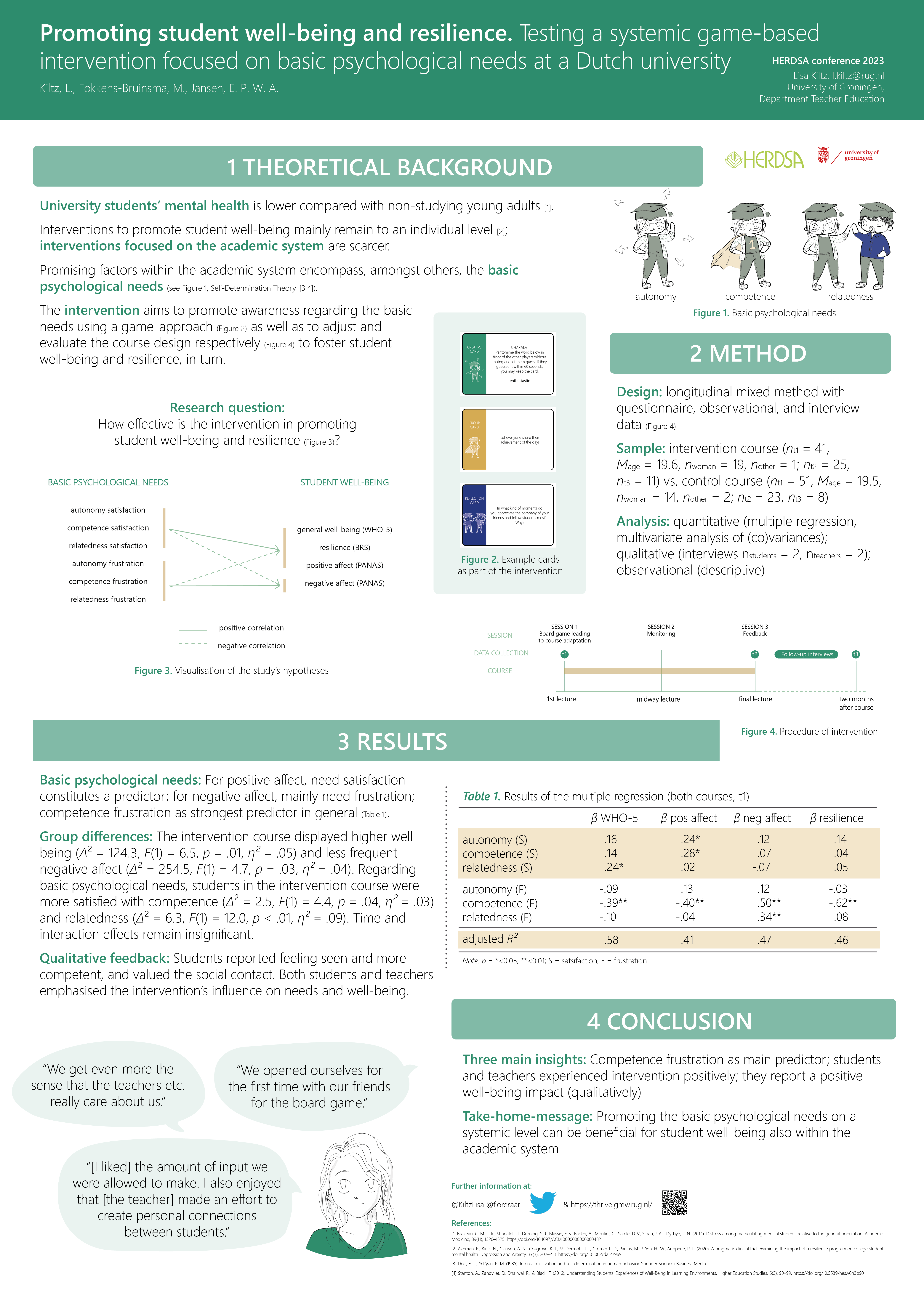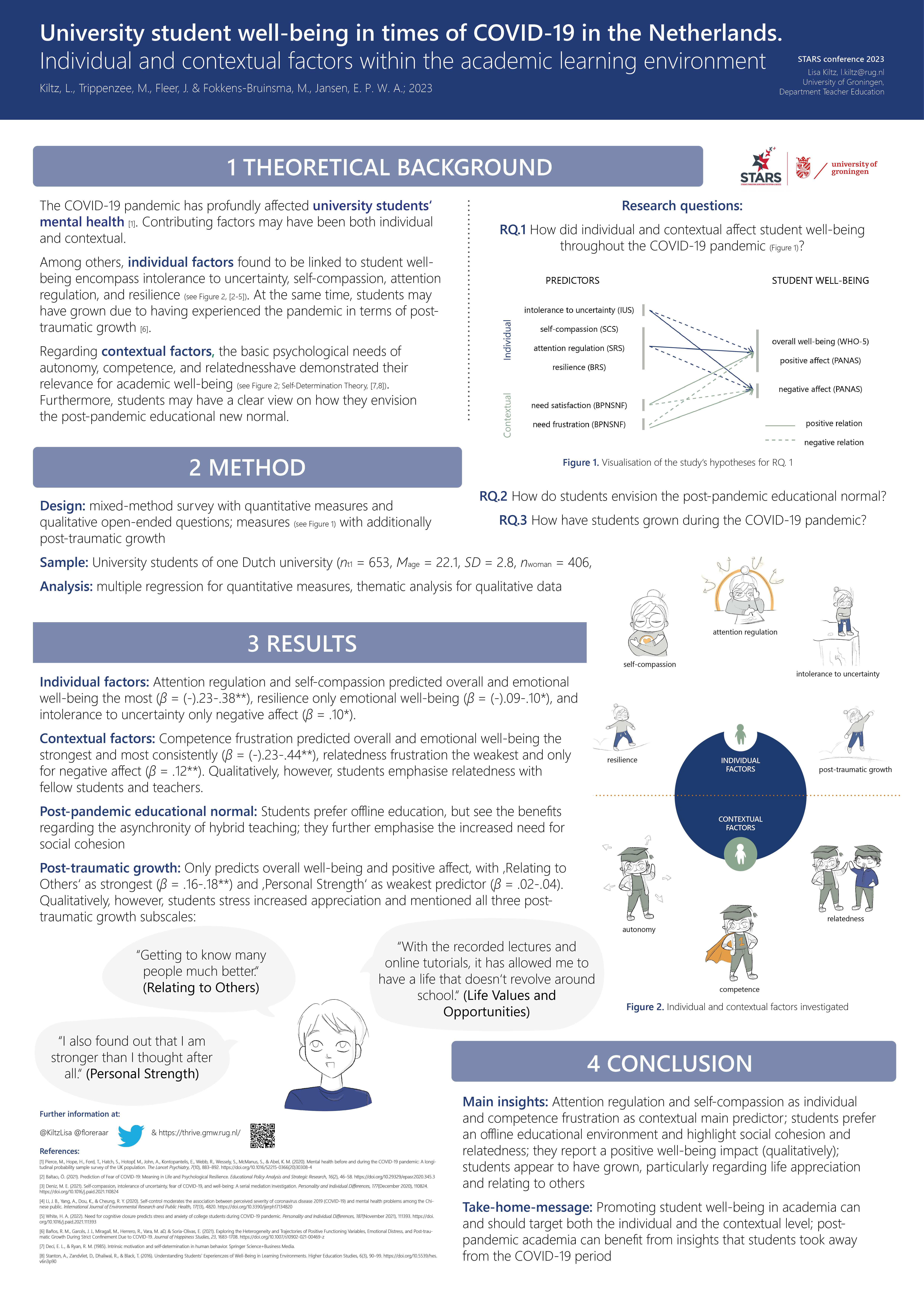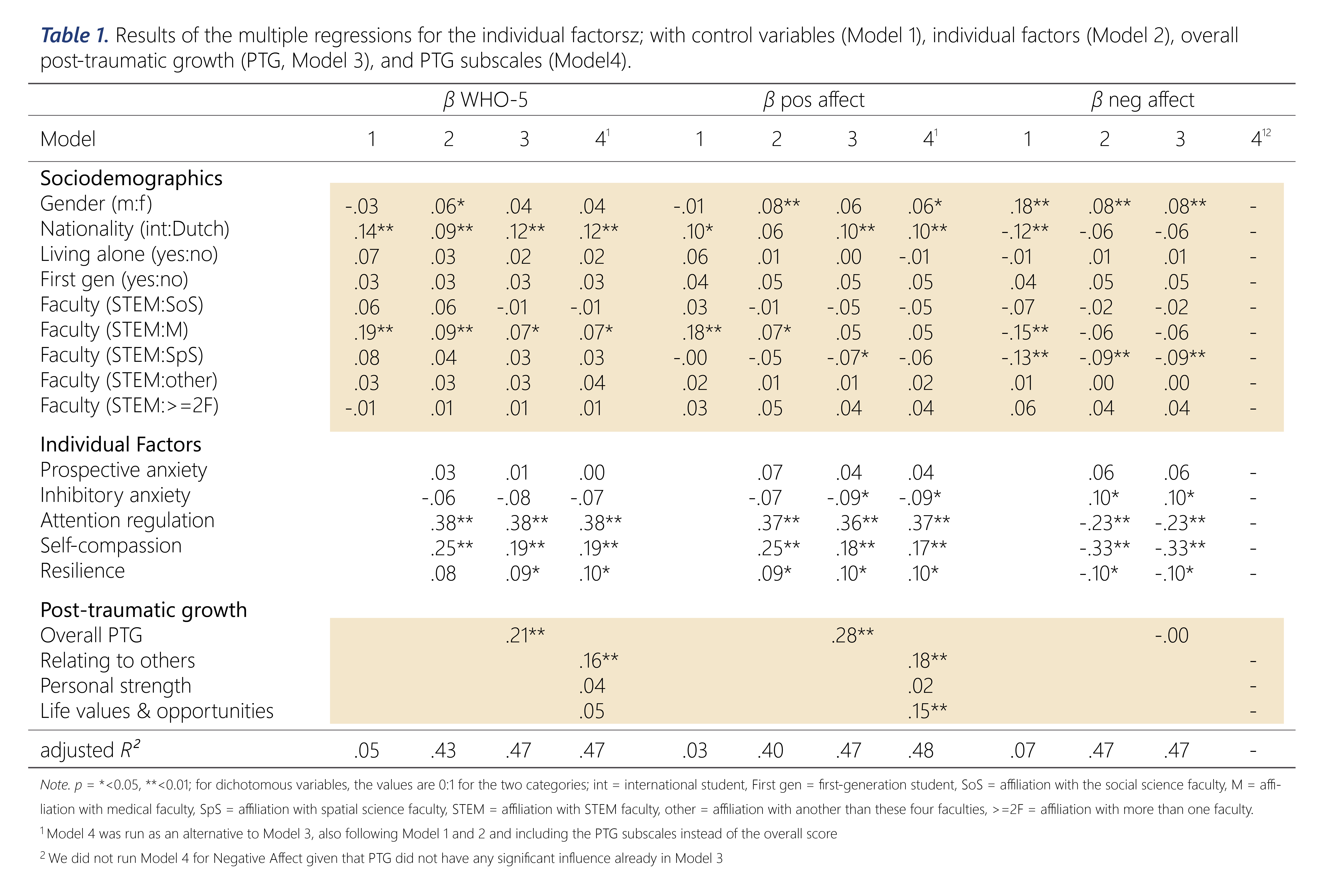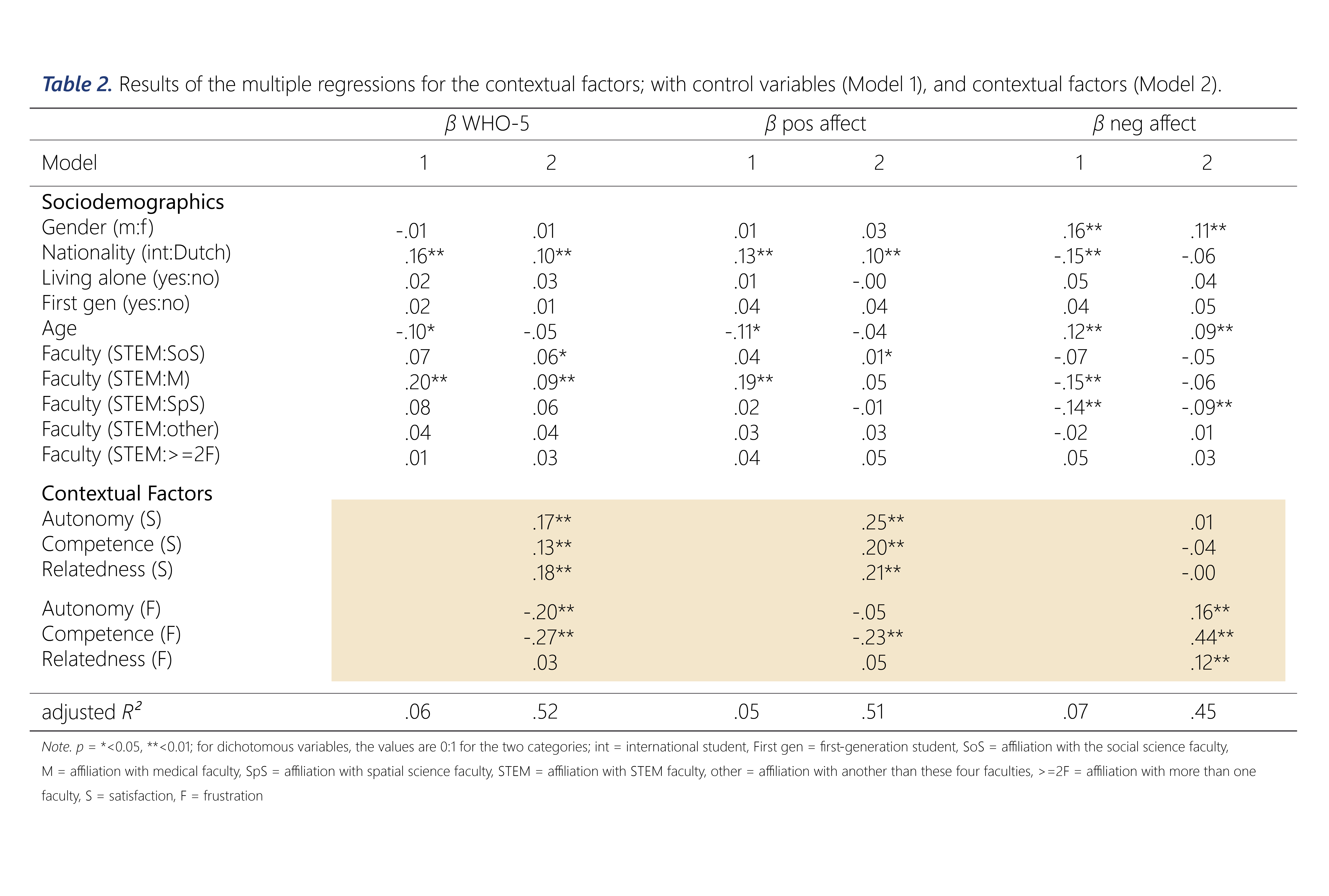This summer, I will present two of my studies as posters at the HERDSA and STARS conferences in Melbourne and Brisbane, Australia, and I am beyond excited already! Therefore, I wanted to share the posters with you beforehand.
First, I will present the preliminary results of our intervention evaluation study, based on the data gathered last year:

Beyond that, I will present the results of the two studies based on our mixed-method survey study, of which one has been published at the beginning of this year (here), and the other is currently being written.

As this poster comprises two papers with extensive results, we wanted to provide the Tables summarising the multiple regressions as additional information at this point:


And if you have any further questions regarding the studies, don’t hestitate to contact me 🙂 – or join one of my sessions at the HERDSA or STARS 2023 conference!
Lastly, here the references for the poster ‘University students’ well-being in times of COVID-19 in the Netherlands’:
[1] Pierce, M., Hope, H., Ford, T., Hatch, S., Hotopf, M., John, A., Kontopantelis, E., Webb, R., Wessely, S., McManus, S., & Abel, K. M. (2020). Mental health before and during the COVID-19 pandemic: A longitudinal probability sample survey of the UK population. The Lancet Psychiatry, 7(10), 883–892. https://doi.org/10.1016/S2215-0366(20)30308-4
[2] Baltacı, Ö. (2021). Prediction of Fear of COVID-19: Meaning in Life and Psychological Resilience. Educational Policy Analysis and Strategic Research, 16(2), 46–58. https://doi.org/10.29329/epasr.2020.345.3
[3] Deniz, M. E. (2021). Self-compassion, intolerance of uncertainty, fear of COVID-19, and well-being: A serial mediation investigation. Personality and Individual Differences, 177(December 2020), 110824. https://doi.org/10.1016/j.paid.2021.110824
[4] Li, J. B., Yang, A., Dou, K., & Cheung, R. Y. (2020). Self-control moderates the association between perceived severity of coronavirus disease 2019 (COVID-19) and mental health problems among the Chinese public. International Journal of Environmental Research and Public Health, 17(13), 4820. https://doi.org/10.3390/ijerph17134820
[5] White, H. A. (2022). Need for cognitive closure predicts stress and anxiety of college students during COVID-19 pandemic. Personality and Individual Differences, 187(November 2021), 111393. https://doi.org/10.1016/j.paid.2021.111393
[6] Baños, R. M., Garcés, J. J., Miragall, M., Herrero, R., Vara, M. aD, & Soria-Olivas, E. (2021). Exploring the Heterogeneity and Trajectories of Positive Functioning Variables, Emotional Distress, and Post-traumatic Growth During Strict Confinement Due to COVID-19. Journal of Happiness Studies, 23, 1683-1708. https://doi.org/10.1007/s10902-021-00469-z
[7] Deci, E. L., & Ryan, R. M. (1985). Intrinsic motivation and self-determination in human behavior. Springer Science+Business Media.
[8] Stanton, A., Zandvliet, D., Dhaliwal, R., & Black, T. (2016). Understanding Students‘ Experienczes of Well-Being in Learning Environments. Higher Education Studies, 6(3), 90–99. https://doi.org/10.5539/hes.v6